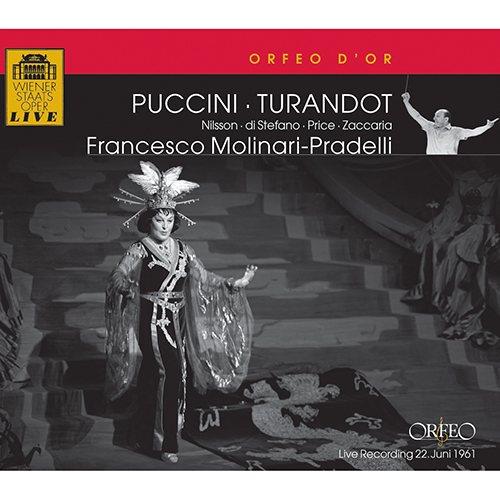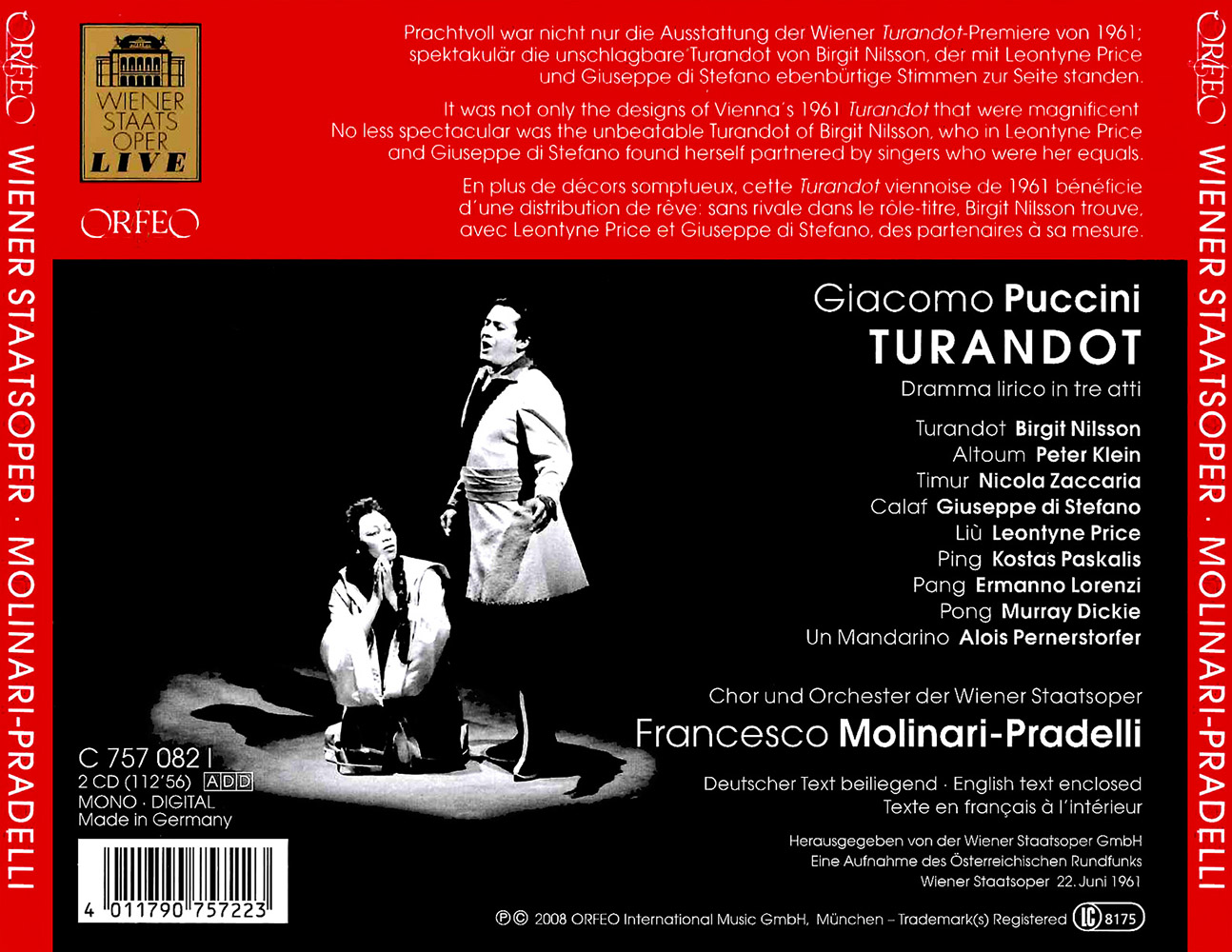Puccini Turandot
They made a distinctly odd couple onstage: she was the supreme hochdramatisch soprano of her generation, a singer able to maintain her tremendous vocal powers over a period of several decades, whereas he could captivate his listeners as a poetic and spirited lyric tenor so prodigal with his resources that within a little more than a decade he had burned himself out. It was in 1961 that Birgit Nilsson appeared alongside Giuseppe di Stefano in a performance of Puccini’s Turandot which, caught on the wing by by the microphones of Austrian Radio, manages not to be simply a duel between two vocal gymnasts anxious to display their top notes. As Calaf, Giuseppe di Stefano, who died on 3 March 2008 at the age of eighty-six, genuinely gives the impression that he is able to melt the Princess of Ice with his mellifluous tenor voice and ingratiating timbre. Especially towards the end of her killer role, Nilsson shows that she has at her disposal the soft notes and subtle nuances needed to effect this change to a sense of greater humanity. This exceptional cast is completed by Leontyne Price as Liù. Rarely in the history of opera before or since have three such distinguished singers appeared together onstage. Price’s portrayal of the self-sacrificial slave-girl is wholly convincing, even though only its vocal element is preserved in the present recording, which dates from the days when Herbert von Karajan was director of the Vienna State Opera and reflects the international lustre of his casting policy. This new production of Turandot was conducted by Francesco Molinari-Pradelli, at that time one of the most sought-after conductors of the Italian repertory. Together with the chorus and orchestra of the Vienna State Opera he offers a reading of Puccini’s colourful score that has real weight to it, sometimes rising to climaxes that sound positively threatening. At the same time, however, the lyrical element, including the arioso passages for Liù and the famous aria „Nessun dorma“, are underpinned by the Viennese strings in a way which – as we might expect – could hardly be more beautiful. An evening in the opera house at which so many of the favourable conditions that we associate with a resident company were combined with the unique and distinctive personalities of international soloists turned out to be a rare success, making it all the more gratifying that we are at least able to hear it again – and again.

















